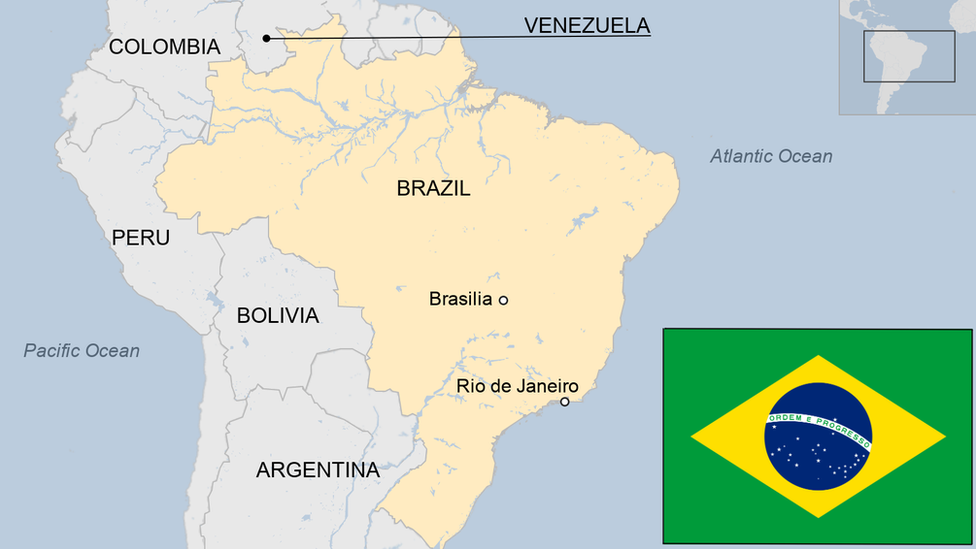Brazil crisis: Rousseff to sue senator over corruption claims
- Published
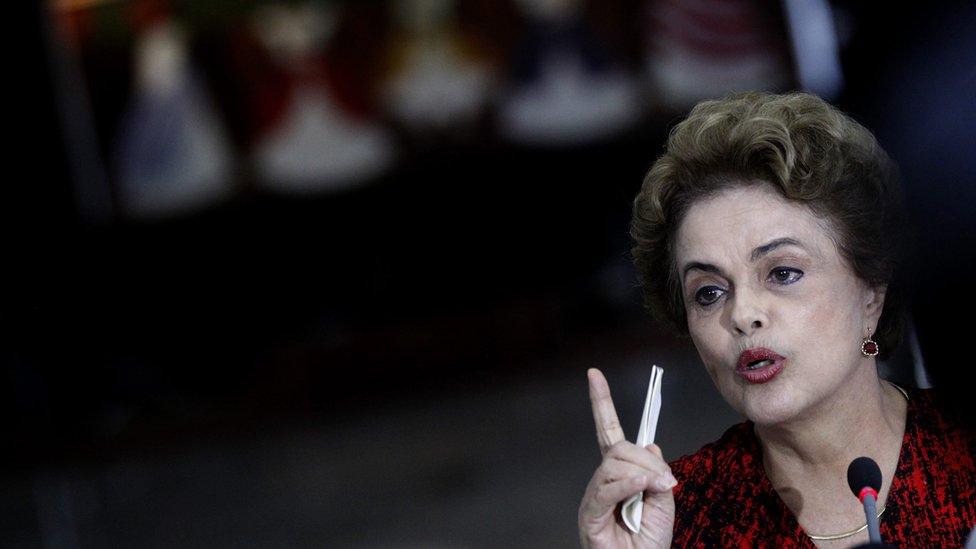
The beleaguered Brazilian president has rejected accusations of wrongdoing
Brazil's President Dilma Rousseff has said she will take legal action against a senator who has accused her of involvement in corruption at the state oil company Petrobras.
Senator Delcidio Amaral said the president knew of wrongdoings and tried to block investigations.
Ms Rousseff has denied any involvement.
Meanwhile, the new justice minister has threatened to remove teams from the Petrobras inquiry if any more material is leaked to the press.
In a statement, Brazil's presidency said Ms Rousseff will sue Senator Amaral for defamation over his interview with a magazine.
He was the leader of her Workers' Party in the Senate and had agreed a plea bargain with prosecutors after being arrested as a result of the Petrobras scandal.
What the Petrobras scandal is about
Rousseff faces a perfect storm
The inquiry has led to the arrest or investigation of dozens of executives and politicians, suspected of overcharging for contracts with Petrobras and using part of the money to pay for bribes and electoral campaigns.
There is widespread public support for the investigation, known as Operation Car Wash, but Ms Rousseff and her allies have criticised its leading judge, Sergio Moro.
They argue the inquiry has become politicised and some of his actions have been illegal.
Last week, Mr Moro released phone recordings suggesting Ms Rousseff had appointed her predecessor Luiz Inacio Lula da Silva as her chief of staff to spare him arrest over money-laundering charges he denies.
Even though Ms Rousseff vehemently denies it, Supreme Court judge Gilmar Mendes has suspended Lula's nomination, and a final decision is yet to be announced.
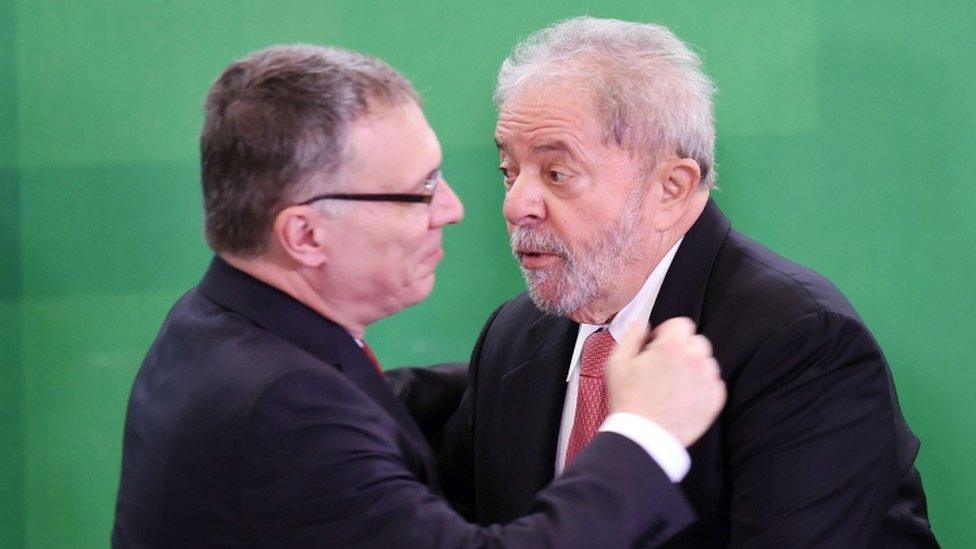
New Justice Minister Eugenio Aragao (L), pictured with Lula, is trying to clamp down on leaks to the media
If Lula is a minister, any charges against him can only be dealt with by the Supreme Court, which operates more slowly, and not by Mr Moro.
Earlier this month, Lula was briefly detained and questioned at Mr Moro's request.
The media role
Ms Rousseff's supporters have also criticised leaks of questioning and details of the investigation to the media.
New Justice Minister Eugenio Aragao questioned the publication of the unverified phone tap conversations between Ms Rousseff and Lula and said the Car Wash investigation was losing its objectivity.
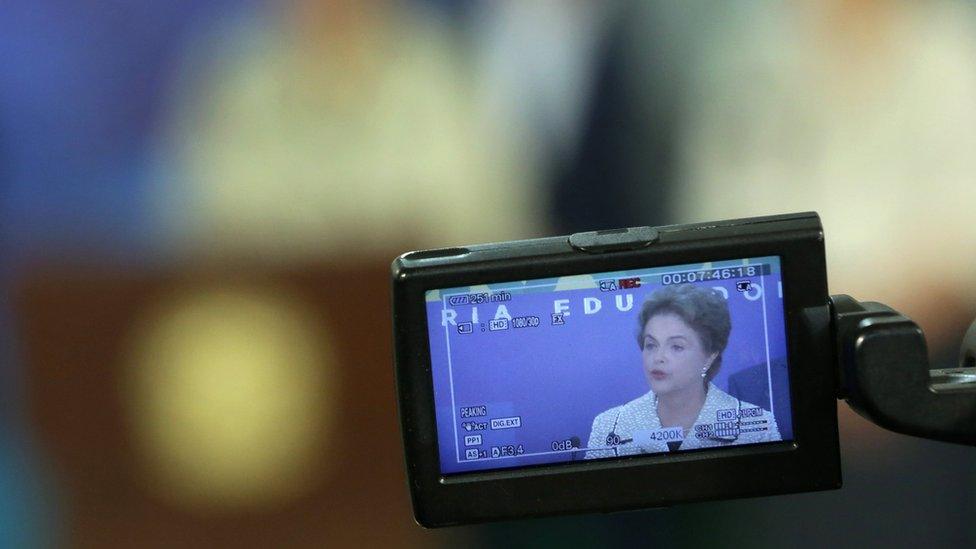
Ms Rousseff's allies have also accused part of the media of bias
The release of the recordings has also been criticised by Supreme Court judge Marco Aurelio Mello, who has questioned its legality.
However, the content of the phone calls has increased pressure on Ms Rousseff, who is facing growing calls for her removal.
Additionally, there has been a resurgence in allegations of media bias against Ms Rousseff and her Workers' Party.
Much of the criticism has been against Globo, the country's largest media group and one of the biggest in the world, allegations it denies.
In 2013, the network issued an announcement about its support of the 1964 military coup, which led to a two-decade military dictatorship, and admitted it had made a "mistake".
- Published17 March 2016
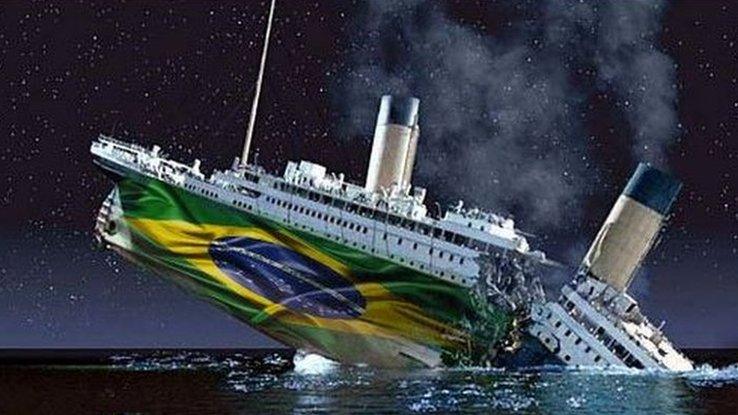
- Published17 March 2016
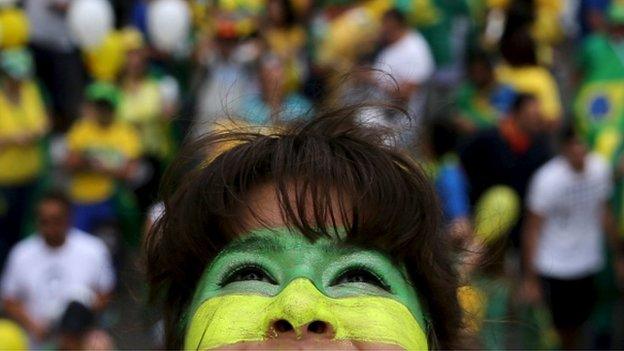
- Published10 March 2016
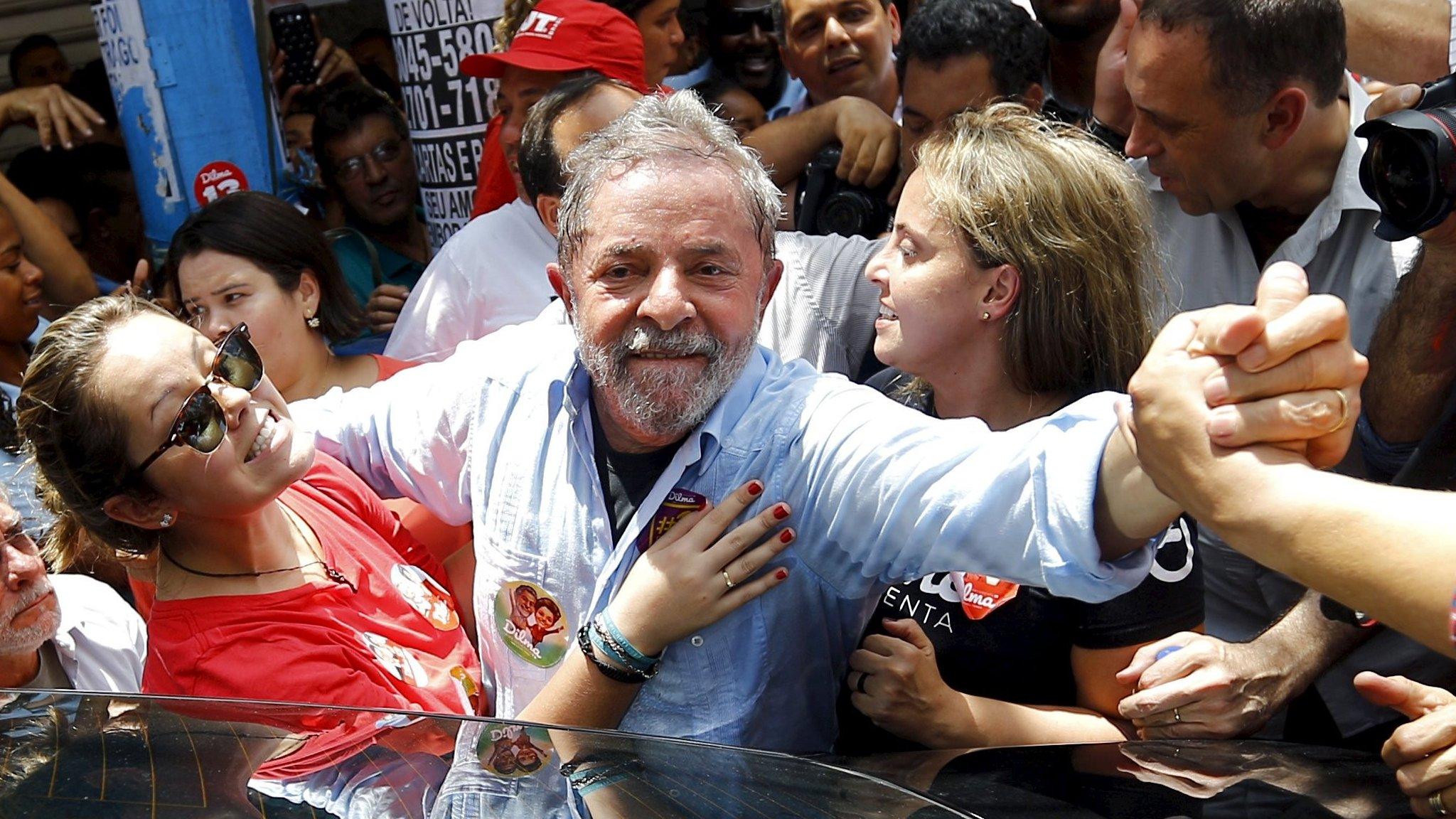
- Published4 May 2016
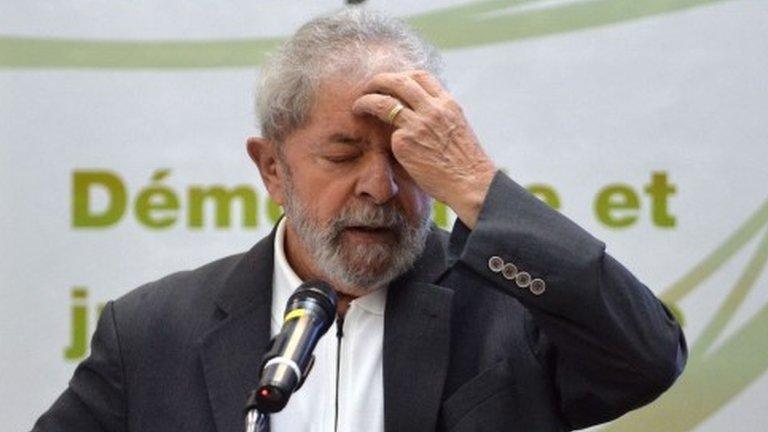
- Published4 March 2016
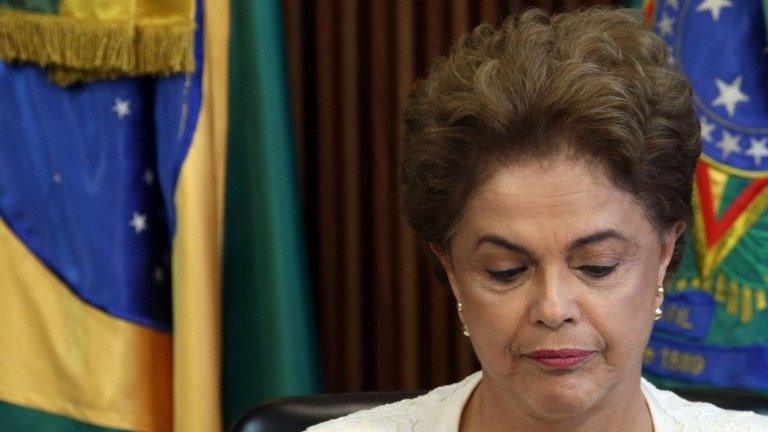
- Published2 June 2023
